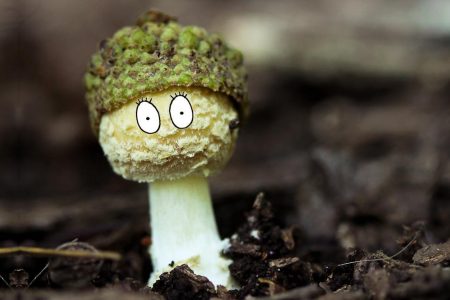Don't go to sleep!
Feeling down? Perhaps experiencing some winter blues? Sleep deprivation might be the answer. Neuroscientists at Tufts University have revealed an interesting mechanism behind this puzzling solution, by investigating the role of astrocytes.
It is already late, and you are tired, but this paper really has to be finished by tomorrow. You take another coffee and set your alarm clock a bit earlier, so you can get it all done in time…
Negative effects of a lack of sleep
Sounds familiar? Everyone knows the groggy feeling when you are not getting enough sleep. Moreover, sleep deprivation may actually lead to several health problems and negatively affects neurocognitive performance. Moreover, it has recently been shown that you cannot just compensate for it by sleeping longer during weekends. On top of that, it affects your facial features (not in a positive way), which in turn may have social consequences. Conclusion: avoid sleep deprivation at all costs.
Positive effect of sleep deprivation on depression
However, here is the paradox: for some of us it may actually be advantageous. Since the 1970s it has been known that people with depression could benefit from acute sleep deprivation, and more recent studies confirm this. Furthermore, people with bipolar disorder (defined by depression as well as manic episodes), as well as those affected by seasonal affective disorder (known as SAD, characterized by depression during darker winter months) can have long-term profitable effects from sleep deprivation.
Astrocytes regulating adenosine and depression symptoms
How does this work? Although the mechanism of sleep is still poorly understood, recent research into the beneficial role of sleep deprivation as a treatment for depression has pointed towards astrocytes. These star-shaped glial cells communicate with neurons and are present in the brain and spinal cord. Neuroscientists found how astrocytes can regulate the neurotransmitter adenosine, which is involved in sleep. They administered a specific substance (adenosine receptor agonist) to sleeping mice, which mimicked sleep deprivation. They found that as little as 12 hours later the mice had fewer depressive-like symptoms and higher adenosine levels in their brains. By manipulating astrocyte-to-neuron signaling they demonstrated how astrocytes play an important role in the positive effects of sleep deprivation on depression.
Disruption of the internal clock
Apart from astrocytes, so-called ‘clock genes’ (genes that are involved in circadian rhythms) could also be involved in the beneficial role of sleep deprivation on depression. A recent review on this mechanism suggests that mood disorders may be characterized by abnormal functioning of clock genes. Since sleep deprivation disrupts circadian rhythms, it may be effective as a treatment for depression.
Clearly, sleep deprivation has two sides. Should you become depressed by the heavy workload and the approaching winter darkness, please do not hibernate: at one point sleep deprivation may become your best friend.





